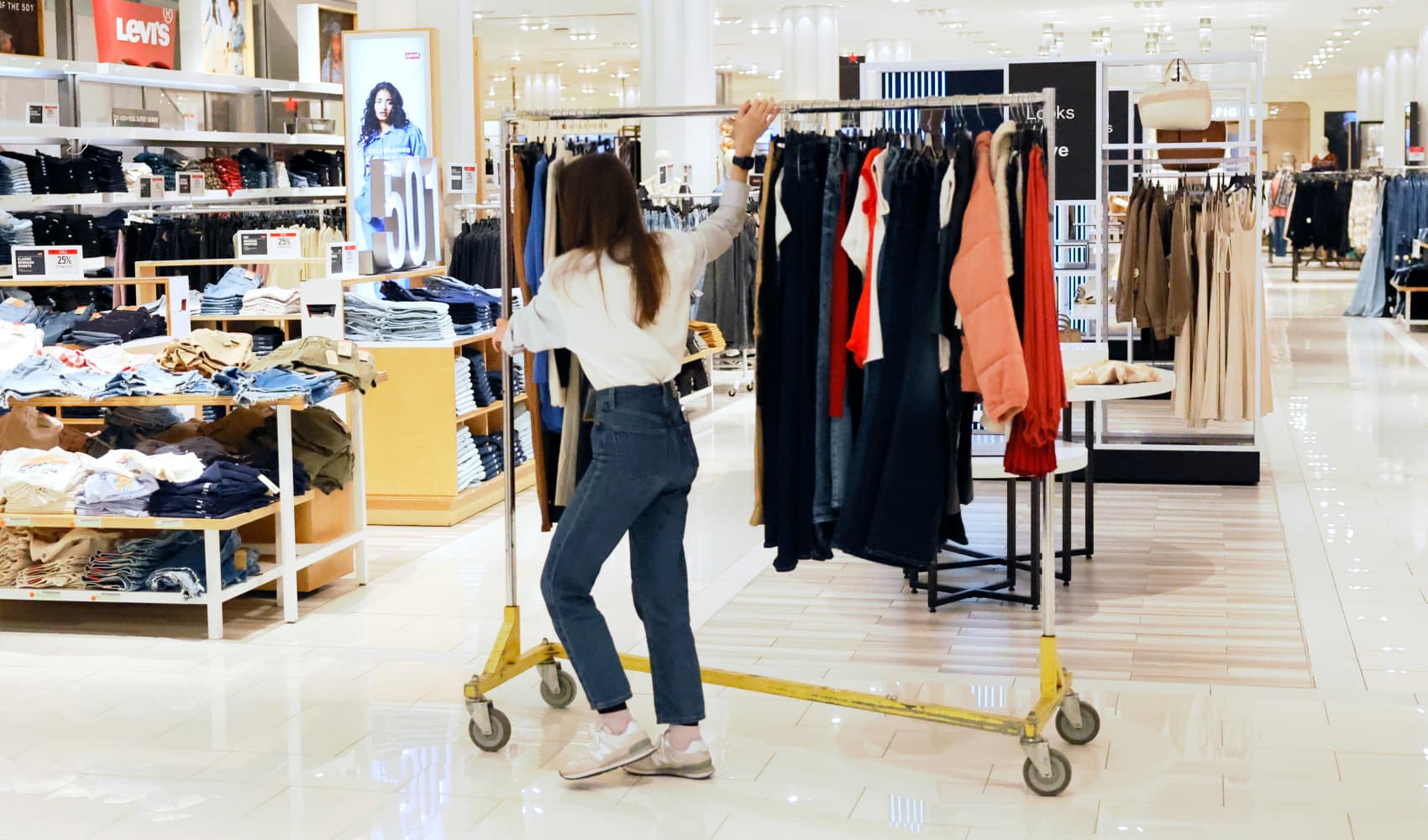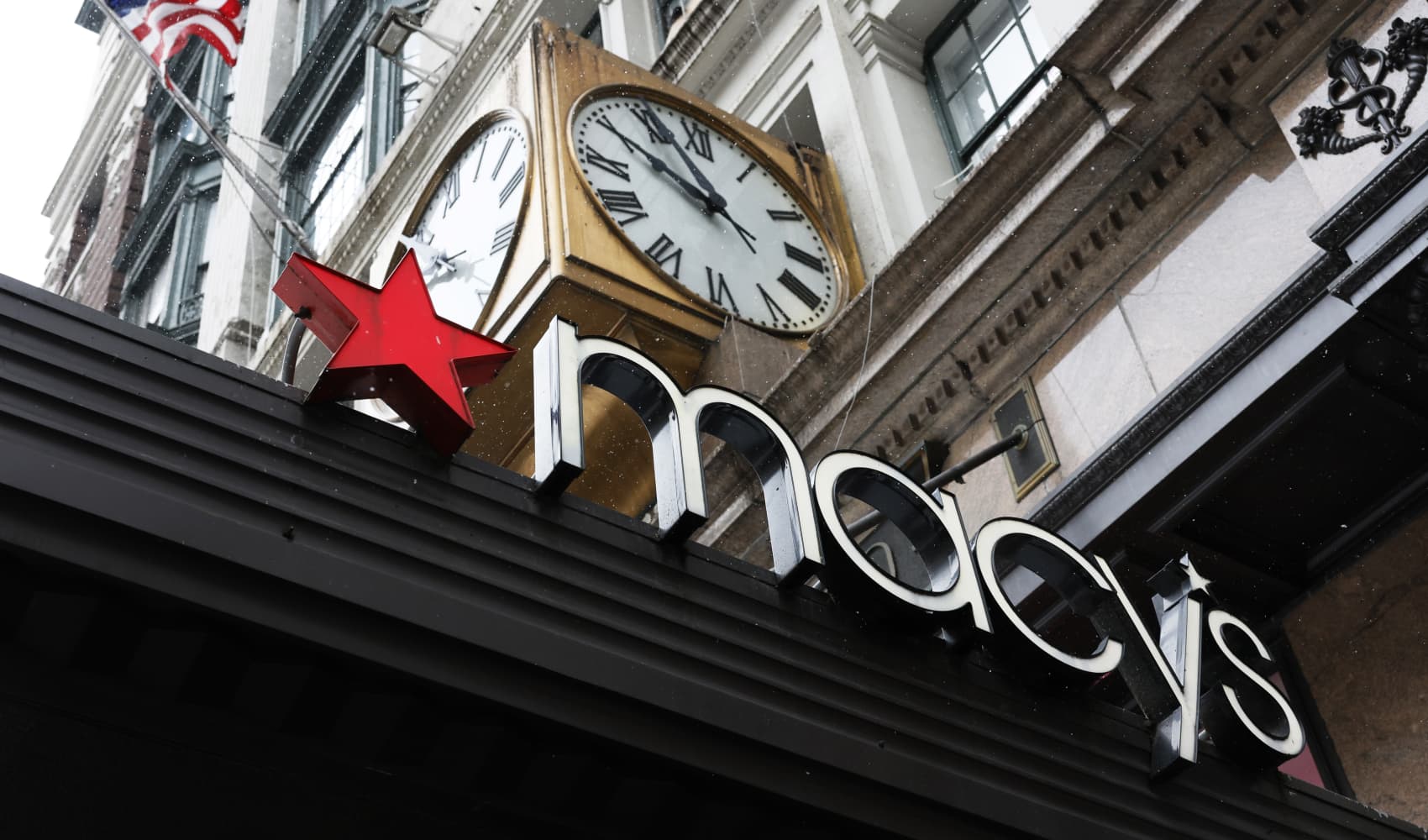After Macy’s announced Tuesday it will close 150 stores nationwide, San Francisco Mayor London Breed said the company is looking to sell its Union Square property.
"The process to undergo the sale of their building to a new owner with their own vision for this site will take time, and Macy’s will stay open for the foreseeable future and people will remain employed at the store," Breed said in a statement. "Macy's has expressed to me their commitment to remaining a part of Union Square and our City while they undergo this transition."
Macy's said it will close 150 unproductive namesake stores over the next three years including 50 by year-end after posting a fourth-quarter loss and declining sales.
As part of the strategy, Macy’s aims to upgrade its remaining 350 stores, with plans to add more salespeople to fitting areas and shoe departments, while adding more visual displays like mannequins. At the same time, the company signaled a pivot to luxury, which has fared better overall. It said it would open 15 of its higher end Bloomingdale’s stores and 30 of its luxury Blue Mercury cosmetics locations.
The Macy’s stores set to close account for less than 10% of its sales, the company said.
The Union Square Alliance, a collective of business owners in the neighborhood's 27-block radius, issued a statement about the planned closure.
"Macy's at Union Square is not closing their store until a buyer can be found for their building. Macy's will remain open and could still be open for years to come. In all likelihood, there will be a holiday shopping season and Macy's great tree in 2024," said Marisa Rodriguez, CEO of the Union Square Alliance.
"Having said that, the situation is fluid and there is no getting around the fact that this announcement hurts. For generations, Macy's has been synonymous with Union Square. I believe that we should work toward a solution that allows Macy's to keep this iconic store open.
Get a weekly recap of the latest San Francisco Bay Area housing news. >Sign up for NBC Bay Area’s Housing Deconstructed newsletter.
However, if that does not come to pass, our expectation is that a new owner for this iconic site will come forward to continue a fresh and vibrant vision at this critical location," Rodriguez said.
Breed downplayed the role retail thefts may have played in the decision.
“We've seen a significant decline in crime, and so we know this has nothing to do with that decision," she said. "It’s really a larger business decision that Macy's has made."
Experts in the retail industry said retail crime had a lot to do with the decision to leave Union Square.
The planned closure is the latest hit to the retail industry in San Francisco. Last June, Westfield announced plans to give up its mall along Market Street that at 1.2 million square feet is the largest shopping center in the city.
“There’s a ‘win win win’ here if they think big about it,” said Christopher Thornberg of Beacon Economics, an economics consulting firm.
He said a shift in brick and mortar retail has been going on for decades, as evidenced by the demise of Sears, Kmart and JCPenney’s. He’s imagining a Union Square makeover.
“Where you’re doing mixed use, residential, light office, retail, heavy orientation on entertainment, a little theater, or some place to do music, again lots of restaurants, outdoor seating, a very walkable kind of community,” he said.
Long-term plans for the building are uncertain, but board of supervisors president Aaron Peskin said he’s been assured that the sale won’t happen until next year, meaning at least one more Christmas at Macy’s.
The Associated Press and Bay City News contributed to this report.



